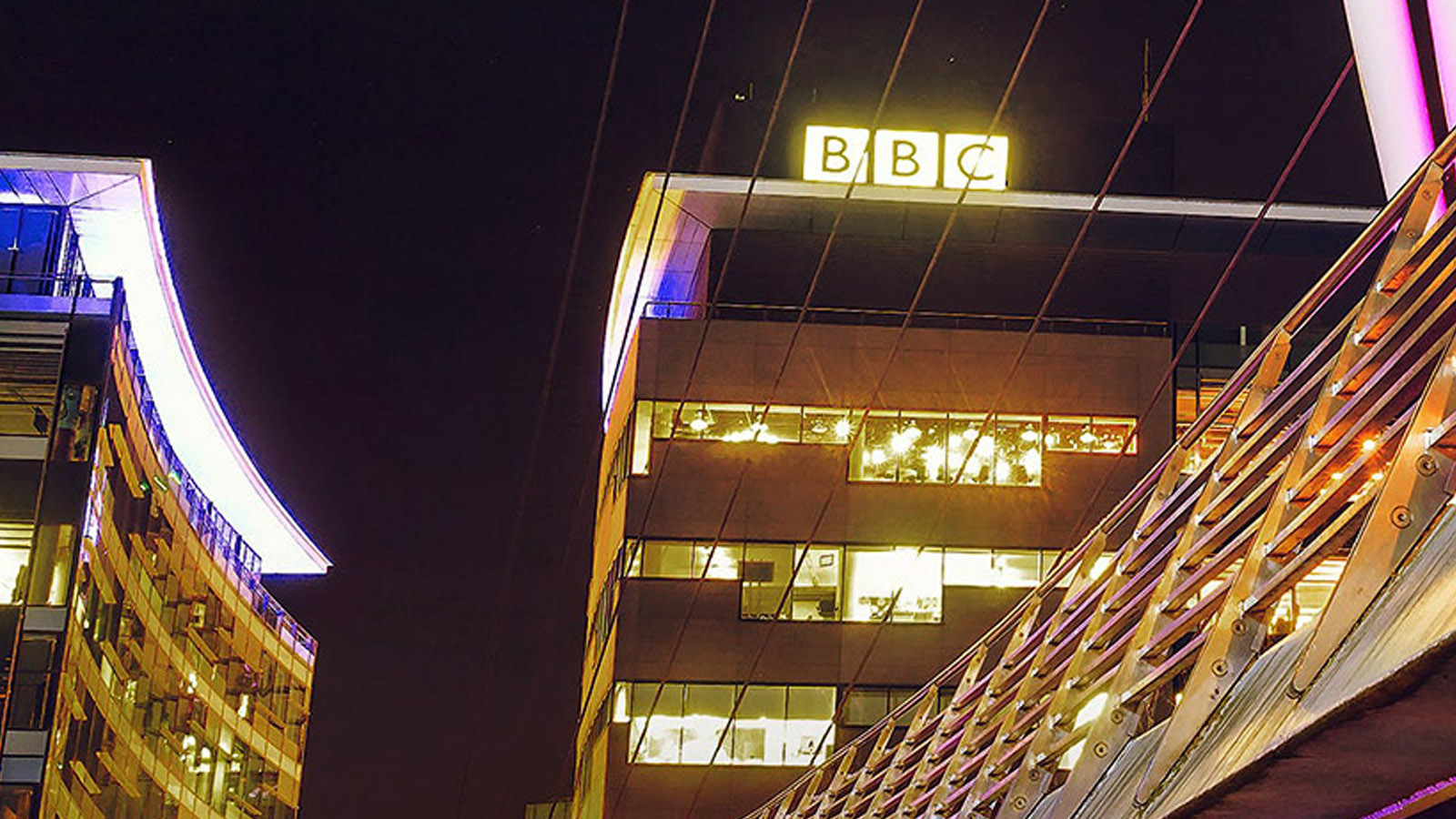The BBC belongs to everyone. We demand a democratic say on its future.
Join our campaign to demand that the Government give the British public an active and direct role in the BBC Charter review.
- Sign the MRC/38 Degrees petition to Lisa Nandy
- Represent an organisation? Contact the MRC to co-sign our joint letter to Lisa Nandy
- “A blueprint for permanent decline” – read the MRC’s analysis of the DCMS Green Paper and consultation on Charter renewal.
- Share the MRC’s Green Paper Parliamentary briefing with your MP
- You can also read our BBC Charter review FAQs below, along with MRC statements, media articles and appearances below.
The BBC has been a cornerstone of British society and the UK’s media industries for over a century. The BBC Charter review, which will decide the BBC’s purposes and how it is run for at least the next decade, is an historic opportunity to ensure the BBC truly serves the British public and our democracy.
Yet for too long, the public has been shut out from decisions about the BBC and our vital public media institutions. The upcoming BBC Charter review must not repeat the undemocratic and unaccountable practices of the past.
We call on the Government to immediately organise a series of Citizens’ Assemblies, hosted throughout the UK with participants selected by democratic lottery, which will put the British public at the heart of deciding the future of the BBC.
You can support our campaign by:
If the BBC’s next Royal Charter does not command widespread public support, it will lose the democratic legitimacy it needs to continue as a vital and valued public institution. At worst, the scale of challenges facing a poorly reformed BBC may prove impossible to overcome.
The stakes could not be higher. The Government must involve the public in these crucial debates on the BBC’s future, and utilise Citizens’ Assemblies to make the BBC Charter Review a genuinely open, inclusive and public-led process.
BBC Charter review FAQs
- What is the BBC Royal Charter?
- The BBC is governed by a Royal Charter, which serves as the BBC’s constitution and mission statement. The Charter sets out how the BBC is structured, regulated and its core purposes as a public service broadcaster. It also defines the various powers that the UK Government, the regulator Ofcom and the BBC Board have over the BBC’s operational and editorial processes.
The BBC has been issued with nine Royal Charters in its 100-year history. Each Charter includes an expiry date stating when the government will be required to review and renew the BBC’s constitution for a new period (usually 10 years or more). The current BBC Royal Charter ends on December 31st 2027.
- What are the problems with the BBC Charter review?
- Because the Royal Charter is issued by the Privy Council (made up of government ministers), the process for reviewing the BBC’s Charter is controlled entirely by the government of the day, with no democratic oversight. The government also holds exclusive control over the BBC’s public funding via setting the level of the TV licence fee, and appointing figures to the BBC Board.
There is no legally established process for how Charter review happens, and this gives politicians a huge and unaccountable influence over what questions get asked, what reforms are considered, and who takes part in making decisions. Not even parliament has an official role in voting on the Charter.
Previous Charter reviews have shown the serious dangers of allowing government to shape how Charter review is organised. During the last review in 2015-16, after more than 192,000 members of the public submitted their views on the BBC’s future, the government openly dismissed their contributions.
The most important decisions about the 2016-2027 BBC Charter were not made publicly or democratically, but instead through a murky series of private negotiations, backroom lobbying and an intensely negative press campaign by the BBC’s rivals. The government also used its control over BBC funding to pressure it into accepting drastic reforms to the Charter that weakened its public service mission while benefitting commercial players.
- How could Charter review be made more democratic?
- The British public own and fund the BBC: we deserve to be equal and active partners in these once-in-a-generation debates about the BBC’s future. Tokenistic consultations, tickbox surveys and opaque industry lobbying will not deliver the legitimacy and new ideas that the BBC needs.
Our campaign is calling on the Government to immediately organise a series of Citizens’ Assemblies, hosted throughout the UK with participants selected by democratic lottery, which will put the British public at the heart of deciding the future of the BBC.
- How would Citizens’ Assemblies work for the BBC?
- Citizens’ Assemblies would give the public real power to debate and decide on the most important questions about the BBC’s future, including the scale of its services, how the BBC is governed, and how it is funded.
After selecting large groups of the British public by democratic lottery – ensuring that the full series of assemblies (individually and collectively) represent the UK population at large – each assembly would meet over a period of several months to collect evidence, invite witnesses and experts, debate their own experiences and perspectives, and collectively design proposals for BBC reform.
Numerous Citizens’ Assemblies have been held across the UK and around the world, and have given members of the public a direct and meaningful role in deciding major matters of public interest. Time and again these Assemblies have proven that when people from all walks of life are given the time, space and opportunity to deliberate together and weigh up the facts, they bring a breadth of wisdom and experience to find sensible, fair solutions that people can trust.
You can learn more about citizens’ assemblies from the Sortition Foundation.
Media Reform Coalition statements and media about the BBC
November 2025
- Nov 11 2025: MRC statement on BBC resignations & urgent need for governance reforms
- Nov 11 2025: MRC Chair Prof Lee Edwards on the importance of public input to debates on the BBC
- Nov 11 2025: Counterfire asked MRC co-founder Des Freedman: has there been a coup at the BBC?
- Nov 12 2025: Former MRC Chair Dr Tom Mills on the politics behind the BBC Panorama scandal, for Byline Supplement
- Nov 12 2025: Des Freeman asking Whose BBC? for London Review of Books
- Nov 15 2025: Tom Mills interviewed by Al Jazeera and France 24 about the BBC Panorama/resignations crisis
- Nov 17 2025: Dan Hind for Northwest Bylines proposing radical reforms to make the BBC democratically accountable
December 2025
- Dec 9 2025: “The importance of public deliberation” – A chapter by MRC Chair Lee Edwards and Giles Moss for the British Academy’s journal on BBC governance
- Dec 16 2025: MRC vice-chair Tom Chivers spoke to LBC News about the launch of the BBC Charter review.
- Dec 16 2025: Tom Chivers was also quoted in articles by Yahoo News and politico.
- Dec 16 2025: ‘The choice is a democratic BBC, or not BBC at all’ – Tom Chivers article for the Fabian Society.
- Dec 19 2025: Des Freedman on Donald Trump vs the BBC, for Counterfire.
- Dec 19 2025: “A blueprint for permanent decline” – The MRC’s initial analysis of the DCMS Green Paper and public consultation on BBC Charter review.




